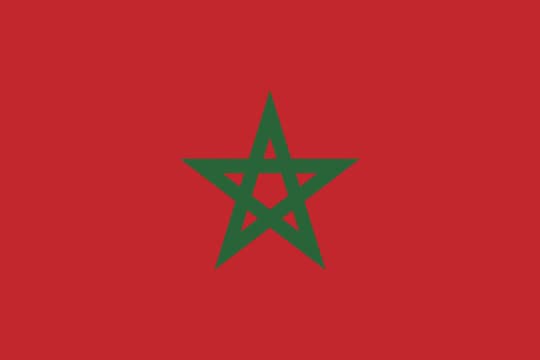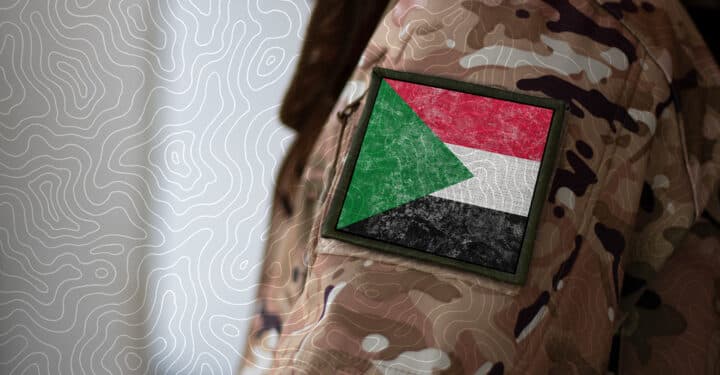
Navigating YouTube Monetization in Morocco: Opportunities and Challenges
summary
YouTube Monetization in Morocco refers to the process by which Moroccan content creators generate income from their videos on the YouTube platform through the YouTube Partner Program (YPP) and other monetization features. As of 2023, YouTube has become a significant platform in Morocco, with over 21 million viewers, representing more than half of the country's population[1]. The availability of monetization tools has enabled Moroccan creators to earn revenue through advertising, fan funding, memberships, and e-commerce integrations, contributing to the growth of the digital economy[2][3]. However, challenges such as evolving tax regulations, content quality concerns, and compliance with YouTube's policies have shaped the monetization landscape[4][5].
The YouTube Partner Program, which allows creators to monetize their content, requires Moroccan YouTubers to meet specific eligibility criteria, including 1,000 subscribers and 4,000 watch hours or 10 million Shorts views within a set timeframe[6][7]. While these requirements provide a pathway to monetization, Moroccan creators often face hurdles such as fluctuating ad revenue, copyright issues, and the need to produce advertiser-friendly content[5][8]. Additionally, the Moroccan government has proposed taxing digital income, including earnings from YouTube, which could impact creators' financial sustainability[9].
Despite these challenges, YouTube monetization has fostered a vibrant creator ecosystem in Morocco, with several success stories highlighting the platform's potential. Prominent Moroccan YouTubers, such as Amine Raghib and Baraka Lbaraka, have built substantial followings and generated significant revenue, showcasing the opportunities for cultural expression and economic empowerment[10][11]. The integration of digital technologies and government initiatives, such as the "Maroc Digital 2030" strategy, further supports the growth of digital content creation as a viable career path[12][13].
Looking ahead, the future of YouTube monetization in Morocco is closely tied to the country's digital transformation efforts, regulatory developments, and the ability of creators to adapt to evolving platform policies and global trends[3][9]. As Moroccan YouTubers continue to innovate and diversify their income streams, YouTube remains a key platform for both cultural influence and economic opportunity in the region[14][15].
History of YouTube Monetization in Morocco
YouTube has become one of the most popular platforms in Morocco for both content consumption and creation, with a significant impact on the country's digital landscape. As of early 2023, YouTube had an estimated 21.30 million viewers in Morocco, representing 56.6% of the country's population at the time[1]. This widespread adoption of the platform has made it a key tool for cultural expression, entertainment, and even political discourse[16].
The availability of YouTube monetization in Morocco has allowed content creators to generate income from their videos, provided they meet the platform's eligibility criteria. Morocco is listed among the countries where YouTube monetization is supported, enabling creators to participate in the YouTube Partner Program (YPP) and earn revenue through ads, memberships, and other monetization features[2][17]. However, navigating the monetization process, including declaring recurring income, has posed challenges for Moroccan creators, as the country's tax and regulatory frameworks for digital income are still evolving[4].
The rise of YouTube as a monetization platform in Morocco reflects broader global trends, where the platform has increasingly integrated e-commerce and expanded access to monetization tools for creators[3]. Despite these opportunities, Moroccan creators must adapt to YouTube's ever-changing monetization policies, which are designed to align with community guidelines, advertiser-friendly content standards, and legal requirements[18]. This dynamic environment has fostered resilience and adaptability among Moroccan YouTubers, who continue to explore innovative ways to build sustainable businesses on the platform[3][18].
Requirements for YouTube Monetization in Morocco
To monetize a YouTube channel in Morocco, creators must meet specific eligibility criteria set by the YouTube Partner Program (YPP). These requirements ensure that channels adhere to YouTube's policies and maintain a certain level of engagement and quality.
Eligibility Criteria
To qualify for the YouTube Partner Program in Morocco, creators must meet the following thresholds:
-
1,000 subscribers: The channel must have at least 1,000 subscribers[6].
-
4,000 watch hours: The channel must accumulate 4,000 valid public watch hours over the past 12 months[6]. Watch hours gained from certain types of content, such as private or unlisted videos, do not count toward this threshold[19].
Alternatively, creators can qualify by achieving 10 million valid public Shorts views in the last 90 days[7]. This option is particularly beneficial for creators focusing on short-form content.
Additional Requirements
Beyond subscriber and watch time thresholds, creators must also:
-
Comply with YouTube's policies: Channels must adhere to YouTube's Community Guidelines, Monetization Policies, and copyright rules. Repeated violations can disqualify a channel from monetization[20][21].
-
Maintain a clean record: Channels must not have any active Community Guidelines strikes[20].
-
Link an AdSense account: Creators must link an active AdSense for YouTube account to receive payments[22].
Application Process
Once the eligibility criteria are met, creators can apply for the YouTube Partner Program through YouTube Studio.
-
Signing up for YPP: Creators can apply from either a desktop or mobile device[19][23].
-
Review process: After submitting the application, YouTube reviews the channel for compliance with its policies and guidelines. This review can take several weeks[22].
-
Approval: If approved, the channel gains access to monetization features such as ad revenue, Super Chat, Super Thanks, Super Stickers, and channel memberships[7].
Maintaining Monetization
To retain monetization privileges, creators must remain active on the platform. YouTube may disable monetization for channels that have not uploaded a video or posted to the Community tab for six months or more[23]. Additionally, creators must continue to comply with YouTube's policies to avoid losing access to monetization features[21].
By meeting these requirements and maintaining compliance, Moroccan creators can unlock the potential to earn revenue from their YouTube content[6][7].
Monetization Strategies for Moroccan Creators
Monetization on YouTube has become a critical aspect for content creators in Morocco, offering various income streams beyond traditional advertising. The YouTube Partner Program (YPP) remains the primary gateway for Moroccan creators to access monetization features, including ad revenue, channel memberships, and fan-funding tools like Super Chat, Super Stickers, and Super Thanks[24][25]. To qualify for these features, creators must meet specific thresholds, such as having 1,000 subscribers and 4,000 watch hours in the last 365 days or 10 million Shorts views in the last 90 days[7].
Advertising Revenue
Advertising revenue is the most well-known monetization method for Moroccan YouTubers, generated through the YouTube Partner Program. However, the quality of content plays a significant role in maximizing ad revenue. Moroccan creators are encouraged to produce advertiser-friendly content that complies with YouTube's guidelines and attracts a broader audience[26][5]. Companies are more likely to invest in ads when the content aligns with their target audience, making it essential for creators to focus on high-quality, engaging videos[5].
Fan-Funding Features
YouTube has expanded access to fan-funding features like Super Chat, Super Stickers, and Super Thanks for creators in Morocco and other Middle Eastern and North African countries[25][7]. These tools allow viewers to support their favorite creators during live streams or premieres, providing an additional revenue stream. For smaller creators with as few as 500 subscribers, these features can be a viable way to generate income, especially if their audience is highly engaged[27].
Affiliate Marketing and Sponsorships
Affiliate marketing and sponsorships are critical strategies for Moroccan YouTubers, particularly for those whose videos may not generate significant ad revenue[28]. By promoting products or services within their content, creators can earn commissions or secure sponsorship deals. Adding a business email to their channel's bio and video descriptions can help attract potential sponsors[28].
Merchandise and E-Commerce Integration
Selling branded merchandise is another effective monetization strategy for Moroccan creators. Eligible creators can use the YouTube Shopping feature to promote their products directly on their channel[24][14]. Additionally, integrating e-commerce platforms into their content allows creators to build sustainable businesses beyond ad revenue[3].
Diversifying Income Streams
Experts recommend diversifying income streams to ensure financial stability. While ad revenue is often seen as the primary income source, it should be treated as supplementary rather than the sole revenue stream[29]. Pairing ad revenue with other monetization methods, such as affiliate marketing, merchandise sales, and fan-funding features, can help Moroccan creators build a more resilient income model[29][28].
Challenges and Opportunities
Despite the growing opportunities, Moroccan YouTubers face challenges such as the "YouTube tax" and the costs associated with professional content production[30]. However, by focusing on creating engaging, high-quality content and leveraging the various monetization tools available, Moroccan creators can unlock significant earning potential and establish a sustainable presence on the platform[15][14].
Challenges Faced by Moroccan YouTubers
Content Quality and Monetization
Moroccan YouTubers face significant challenges in generating ad revenue due to the perceived low quality of content. Many companies are hesitant to advertise on Moroccan YouTube channels, as the content often fails to attract audiences that align with their target demographics[5]. This issue is compounded by factors such as ad-block usage, copyright issues, and ads outside the YouTube Partner Program, which can reduce monetized views and overall earnings[8]. Additionally, the Moroccan Observatory of Digital Sovereignty (OMSN) has raised concerns about the declining quality of digital content in the country, urging creators to produce more responsible and engaging material[31].
Digital Literacy and Content Regulation
A major hurdle for Moroccan YouTubers is the overall level of digital literacy among the population. This affects both content creation and consumption, as creators struggle to produce high-quality, culturally relevant content, while audiences may lack the skills to critically engage with it[32]. Furthermore, the Moroccan government faces challenges in enforcing social media content guidelines, which are often interpreted inconsistently due to the rapid evolution of platforms and varying levels of understanding among users[32].
Taxation and Financial Pressures
The Moroccan government has proposed new tax measures targeting income generated by YouTube content creators. This has sparked concerns among creators, many of whom already face high content production costs, including expenses for teams, equipment, and lighting[9][30]. The potential imposition of taxes could further strain their financial resources, particularly for those who rely on YouTube as their primary source of income[9].
Competition and Global Reach
Moroccan YouTubers also face intense competition from global content creators, as platforms like YouTube provide access to diverse cultural products from around the world[33]. While this global reach offers opportunities for monetization and audience engagement, it also requires Moroccan creators to compete with high-quality, well-funded international content[14]. Additionally, the lack of strategic monetization strategies, such as optimizing ad formats and placements, can limit their ability to generate sustainable revenue[34].
Infrastructure and Training
Despite Morocco's efforts to digitalize its economy, including significant investments in training young people in digital professions, many YouTubers still lack access to the necessary infrastructure and skills to produce professional-grade content[35]. This gap in training and resources further exacerbates the challenges faced by Moroccan creators in building successful and monetizable channels[35].
Success Stories of Moroccan YouTubers
Moroccan YouTubers have carved out a significant niche in the digital landscape, with several creators achieving remarkable success both in terms of popularity and monetization. Among the most prominent figures is Amine Raghib, a tech guru whose YouTube channel, Almohtarif (meaning "The Professional" in Moroccan), has garnered over 4.18 million subscribers. Raghib's longevity and diverse content, ranging from tech tutorials to social media influence, have solidified his position as one of Morocco's most successful YouTubers[10].
Another standout is Baraka Lbaraka, whose animated comedy channel has become Morocco's all-time top-earning YouTube channel, generating nearly $3 million in revenue since its inception. With 3.78 million subscribers, Baraka Lbaraka's content, which humorously depicts Moroccan social settings and cultural stories, has resonated deeply with audiences both locally and internationally[10].
In addition to these established creators, emerging Moroccan YouTubers are also making waves. Channels like Moroccan Rap Lyrics Music and Anas Fetoui have experienced rapid growth, with subscriber increases of over 500% in recent years[11]. These creators exemplify the potential for success on YouTube, even in a competitive and evolving digital environment.
The success of Moroccan YouTubers is not only measured by subscriber counts and revenue but also by their ability to leverage YouTube as a platform for cultural expression and counter-power. Many creators use the platform to highlight Moroccan culture, blending Arab, Berber, and French influences, while others engage in oppositional discourse, challenging traditional narratives and fostering a vibrant digital community[16][36].
Despite the challenges of YouTube monetization, such as fluctuating ad revenue and evolving platform policies, these success stories demonstrate the resilience and adaptability of Moroccan creators. By building engaged communities and diversifying their income streams through brand collaborations and e-commerce integrations, Moroccan YouTubers are paving the way for sustainable careers in the digital economy[3][18].
Impact of YouTube Monetization on Moroccan Economy
YouTube monetization has emerged as a significant contributor to Morocco's digital economy, offering opportunities for content creators to generate revenue while fostering innovation and job creation. The availability of monetization in Morocco, as part of the YouTube Partner Program, has enabled local creators to tap into global audiences and diversify their income streams[2]. However, challenges such as content quality and advertiser interest have limited the full potential of ad revenue in the country. Critics argue that Moroccan YouTubers often produce content that fails to attract advertisers, as it may not align with the interests of target audiences or meet the platform's Advertiser-Friendly Content Guidelines[5][37].
The Moroccan government's focus on digital transformation, as outlined in initiatives like the Digital Morocco Plan and Digital Morocco 2030, has created a conducive environment for digital content creation. These strategies aim to modernize the economy, improve digital infrastructure, and enhance youth skills, with a goal of training 100,000 young people annually in digital skills by 2026[38][12]. This emphasis on digital literacy and innovation has indirectly supported the growth of YouTube as a viable career path for many Moroccans, particularly in niches like sports, food, and music, which dominate the platform's top influencer lists[39].
Despite these advancements, YouTube monetization in Morocco faces hurdles such as ad-block usage, copyright issues, and evolving platform policies that can limit revenue generation[8][40]. Additionally, stricter monetization requirements introduced by YouTube, including eligibility thresholds and content guidelines, have made it more challenging for creators to sustain their earnings[37]. Nevertheless, the integration of e-commerce and expanded access to monetization features are expected to provide new opportunities for Moroccan creators to build sustainable businesses in the future[3].
Legal and Regulatory Framework
The legal and regulatory framework surrounding YouTube monetization in Morocco is shaped by both local copyright laws and broader digital governance policies. Morocco has established a legal framework to protect digital copyright, which is essential for content creators to safeguard their intellectual property and ensure fair compensation for their work[41]. This framework includes provisions for licensing requirements and enforcement mechanisms, though challenges persist in effectively implementing these laws due to issues such as digital literacy gaps and the rapid evolution of social media platforms[32].
In recent years, the Moroccan government has taken steps to address the taxation of income generated by YouTube content creators. In 2023, the government announced its intention to impose taxes on earnings from YouTube, aiming to ensure fair taxation and integrate digital income into the national economy[42][9]. This move has sparked discussions about the financial transparency of online content creation and the broader implications for digital entrepreneurship in Morocco[42][9].
Additionally, the Moroccan Observatory of Digital Sovereignty (OMSN) has raised concerns about the declining quality of digital content, emphasizing the need for responsible digital practices and adherence to content guidelines[31]. This aligns with YouTube's own monetization policies, which require creators to comply with community guidelines, avoid copyright violations, and maintain high-quality content to participate in the YouTube Partner Program (YPP)[20][37]. The YPP offers Moroccan creators the opportunity to monetize their content through ads and other features, provided they meet eligibility thresholds and adhere to YouTube's stringent standards[20][37].
Despite these efforts, enforcement remains a challenge, particularly in balancing the protection of intellectual property with the promotion of digital innovation. The integration of digital technologies in Morocco's public sector, as highlighted in recent policy reviews, underscores the need for a strategic approach to digital governance that supports both creators and the broader digital economy[43]. As Morocco continues to navigate these complexities, the legal and regulatory framework for YouTube monetization will likely evolve to address emerging trends and challenges in the digital content landscape[41][43].
Future Prospects of YouTube Monetization in Morocco
The future of YouTube monetization in Morocco is closely tied to the country's ongoing digital transformation and its efforts to integrate digital technologies into various sectors. The Moroccan government has demonstrated a strong commitment to fostering a digital economy, as evidenced by initiatives such as the "Maroc Digital 2030" strategy, which aims to enhance digital infrastructure, boost youth skills, and support digital startups[13][12]. A key component of this strategy is the goal to train 100,000 young people annually in digital professions by 2026, which could significantly increase the pool of skilled content creators capable of leveraging platforms like YouTube for monetization[35][12].
As YouTube monetization is already available in Morocco[2], the platform continues to serve as a viable avenue for content creators to generate income. However, the landscape is evolving, with potential regulatory changes on the horizon. The Moroccan government is considering imposing taxes on income generated by YouTube content creators, which could impact the financial dynamics of monetization[9]. While this move may introduce new challenges, it also reflects the growing recognition of digital content creation as a legitimate and taxable profession.
The integration of digital technologies in Morocco's public sector and the broader economy is expected to create a more conducive environment for content creators[43]. With increased access to digital tools and training, Moroccan YouTubers are likely to explore diverse monetization strategies beyond ad revenue, such as affiliate marketing, merchandise sales, and premium content offerings[29]. These strategies align with global trends, where creators are increasingly diversifying their income streams to ensure financial stability[44][15].
Moreover, the global nature of YouTube allows Moroccan creators to engage with a worldwide audience, opening up opportunities for cross-border collaborations and partnerships[14]. As the platform continues to evolve, Moroccan content creators will need to adapt to new monetization challenges, such as changes in YouTube's policies and algorithms, which can affect engagement and revenue[40]. Staying informed about these developments and leveraging analytics to optimize content will be crucial for sustained success[15].


